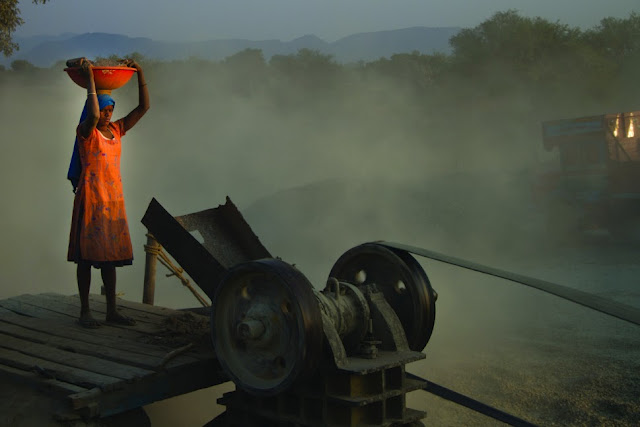-
Fire in the Hole: A Look Inside India’s Hidden Resource War
August 18, 2010 By Schuyler NullThis month’s Foreign Policy has two features on India’s ongoing internal conflict with Maoist and tribal rebels – perhaps the least known insurgency and resource conflict in the world.
“Fire in the Hole,” by authors Jason Miklian and Scott Carney, provides a fascinating on-the-ground account of what they call a “perpetual-motion machine of armed conflict that is grimly familiar in places like the oil-soaked Niger Delta, but seems extraordinary in the world’s largest democracy.” Paired with the article is a photo essay by the authors with some striking images of mining and conflict in Chhattisgarh and Jharkhand states.
Of particular note in their coverage is Miklian and Carney’s account of how India’s thirst for resources fuels the conflict on both sides:
Mining companies have managed to double their production in the two states [Chhattisgarh and Jharkhand] in the past decade, even as the conflict has escalated; the most unscrupulous among them have used the fog of war as a pretext for land grabs, leveling villages whose residents have fled the fighting. At the same time, the Maoists, for all their communist rhetoric, have become as much a business as anything else, one that will remain profitable as long as the country’s mines continue to churn out the riches on which the Indian economy depends.
ECSP recently co-hosted “The ‘Gravest Threat’ to Internal Security: India’s Maoist Insurgency” with the Wilson Center’s Asia Program on the situation, with representatives of the Indian press, civil society, and defense communities. New Security Beat has also covered the conflict in “India’s Maoists: South Asia’s ‘Other’ Insurgency,” with particular attention to the resource management and development issues that have driven strong local support for this latest incarnation of a longstanding Maoist revolt.
Photo Credit: “A woman dumps rubble into a crusher at a mine in India’s Jharkhand state. Jharkhand has an estimated 2,500 off-the-books mining operations, an underground industry that has both built sympathy for the state’s Maoist rebels and provided a source of income for their rebellion.” Courtesy of Jason Miklian and Foreign Policy.
 A Publication of the Stimson Center.
A Publication of the Stimson Center.




